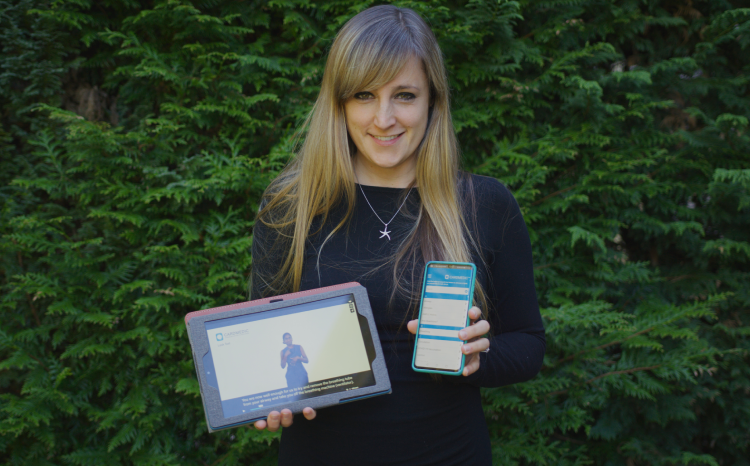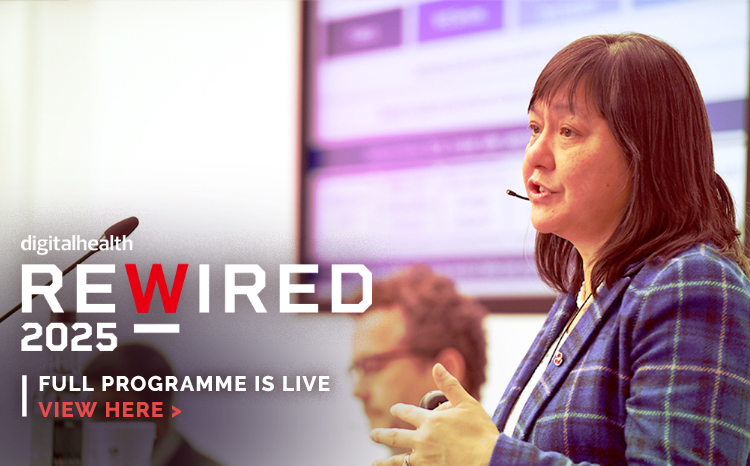Digital Health Rewired 2021: Roundup of day one
- 15 March 2021

Digital Health Rewired 2021 kicked off today with FHIR and the role NHS boards have played during the pandemic. Here is a roundup of some of the key points discussed.
The creator of FHIR (Fast Healthcare Interoperability Resources), Grahame Grieve, opened the Interoperability Summit with a keynote address where he said the FHIR project is “very much patient focused”.
Grieve, who has a background in laboratory medicine and software vendor development, also highlighted a key focus around the world at the moment is to “get data into the hands of the patients”, but that might not necessarily be what the patient wants.
He spoke of how community is at the heart of FHIR, calling it “the real magic”, adding that the project is a community first and a set of technical specifications second.
Designing future standards
Delegates also heard from Irina Bolychevsky, the director of standards and interoperability at NHSX, who said “interoperability can’t just be done from the centre” and called on those working in health technology to get involved to help design future standards, to help inform how they should work in the health service.
Bolychevsky added that NHSX is looking at the process of standards development, and that the governance and oversight matches that process.
The organisation is working with existing programmes like ‘What good looks like’ to develop streamlined ways of thinking around standards, she said.
Developing standards often takes years when “actually it should be much faster”, Bolychevsky added.
Strong call to action from Irina Bolychevsky on how we can help. Be part of user research, adopt standards, raise awareness, tackle blockers, and share best practice.
Thank you, Ira @shevski#DHRewired21 #Interoperability @RSConsult_UK https://t.co/nY6ur75ECO
— Jenny (Cocking) Armstrong (@MissCocking) March 15, 2021
During the lunchbreak, the first finalist of the Rewired Pitchfest 2021 was announced. Concentric Health, a digital consent and shared decision-making web application, won the first heat and are through to the live final on Friday (March 19).
Congratulations to @Concentric_Hlth, winners of #DHRewired21 Pitchfest Heat 1! They will compete in Friday's live final at 1.25pm pic.twitter.com/5cso8OXaqn
— Digital Health Rewired (@DHRewired) March 15, 2021
In the afternoon, Saffron Cordery, opened the Digital Responses to Covid-19 Summit.
In her own keynote, the deputy chief executive of NHS Providers, spoke about how NHS boards have played a “central” role in delivering digital changes that “weren’t necessarily possible” prior to the pandemic.
Cordery also said there were three key areas that changed in order to enable the fast spread of technology: pace, purpose, and priority. She ended her keynote by saying digital is “everybody’s business”, not just that of the IT and digital teams.
Getting the building blocks in place
The afternoon also saw a number of lightening talks on digital responses to Covid-19 – including examples of interoperability between the NHS and Care Providers (including Care Homes).
Mandy Thorn, chair Marches Local Enterprise Partnership, and Keith Strahan, principal clinical lead NHS Digital Social Care Programme, have been working together to deliver digital services in social care.
Thorn says summary care records have made a “fundamental difference” to the support care homes are able to offer.
Strahan reminds us of the importance of ‘building blocks’ to ensure seamless data sharing across local authorities, social care and hospital settings.
Breaking down the digital barriers
Bring the day to an end, Gareth Thomas, deputy CCIO at NHSX, spoke about the digital transformation processes undertaken during the pandemic.
He said “traditional” barriers were overcome to deliver digital “at pace”, including the widespread adoption of video consultation and simpler information governance guidance.
Digital Health Rewired 2021 is running from 15-19 March and is free for everyone from NHS, public sector, independent providers, charities and education sectors, plus start-ups less than three-years old.





